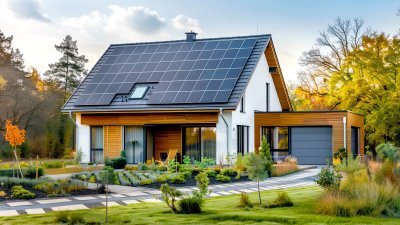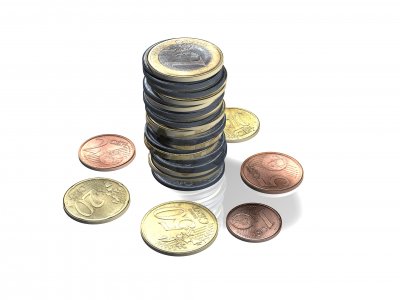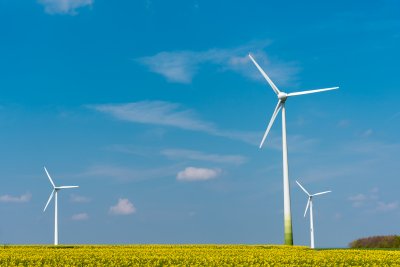An energy performance certificate is required when selling or renting a property. The consumer advice center points this out. The law requires this in order to ensure transparency regarding the energy efficiency of a property. A distinction is made between demand and consumption certificates, with the latter being cheaper but less informative. The cost of the energy performance certificate must not...
Energy efficiency
So-called hybrid systems can contribute to better energy efficiency in buildings. This is achieved by combining several technologies, such as a heat pump and another energy source. The heat pump uses ambient heat to efficiently heat and cool buildings. Compared to a conventional heating system, it consumes significantly less electrical energy. Your...
The view of wind turbines has only a minimal impact on the value of properties. Houses from which residents can see one or more wind turbines were sold for only 1.12 percent less than those with a clear view. However, two factors must be taken into account: the number of wind turbines and the proximity to the house. If residents have a view of more than 20 wind turbines, the...
Consumers can currently save 300 to 800 euros per year by switching electricity or gas providers. The North Rhine-Westphalia consumer advice center points this out. There are "cheap electricity and gas tariffs" again. In addition, some electricity tariffs are also back to "pre-crisis levels" according to the NRW consumer advice center. If a family switches from an electricity tariff with a basic price...
The energy efficiency class of a property has a significant impact on its market value. For example, houses with the highest energy efficiency class A+ are on average 25 percent more expensive than those with the lowest energy efficiency class H. This trend is also reflected in apartments: properties with class A+ achieve a premium of 25 percent compared to those with energy efficiency class D.
The Federal Minister for Housing, Urban Development and Construction, Klara Geywitz, has emphasized the importance of the vote on the EU Energy Performance of Buildings Directive (EPBD) in the European Parliament. With this decision, Europe is taking a major step towards a more environmentally friendly building sector. The aim is to reduce primary energy consumption in existing residential buildings and thus achieve a...
The Federal Network Agency (BNetzA) has removed around a third of the 550 questions previously included in its energy monitoring. One of the reasons for this is a "reduction in bureaucracy". There are deletions in each of the ten questionnaires. The "Energy and Construction" team of the German Federation of Consumer Advice Centres and Consumer Associations (vzbv) criticizes this development because it...
People with a regular income may also be able to claim social benefits for high heating costs. On the one hand, this assistance is possible if an independent contract has been concluded with a gas supplier. On the other hand, they can also be applied for if the costs are settled with the landlord through the utility bill. The consumer advice center points this out...
The Leibniz Institute of Vegetable and Ornamental Crops (IGZ) is receiving funding of around 4.3 million euros from the Ministry of Science, Research and Culture of the State of Brandenburg. This budget is earmarked for measures to increase energy efficiency and to secure research operations under the current energy challenges. The funding will be used for structural...
Renewable energies achieved a record share of 59.7% (260.68 terawatt hours) of net public electricity generation in Germany in 2023. Electricity generation from fossil fuels amounted to 38.8 percent (169.38 TWh) and 1.5 percent (6.72 TWh) of the electricity generated came from nuclear energy. This is according to a publication by the Fraunhofer Institute for Solar Energy Systems...









